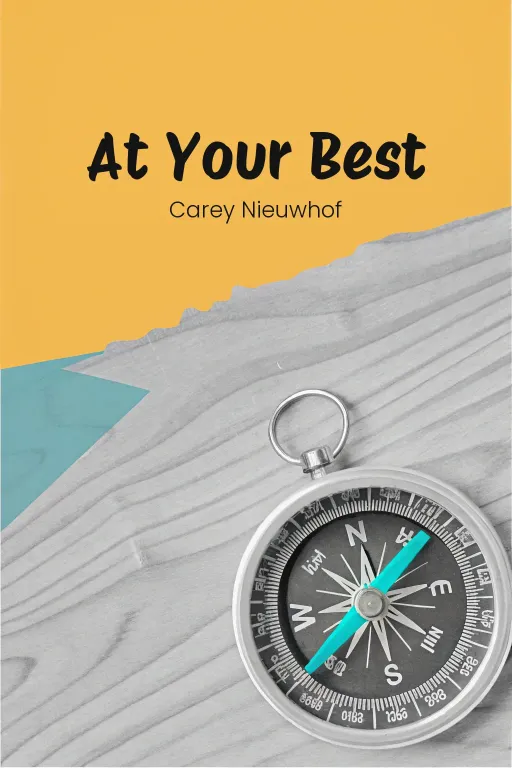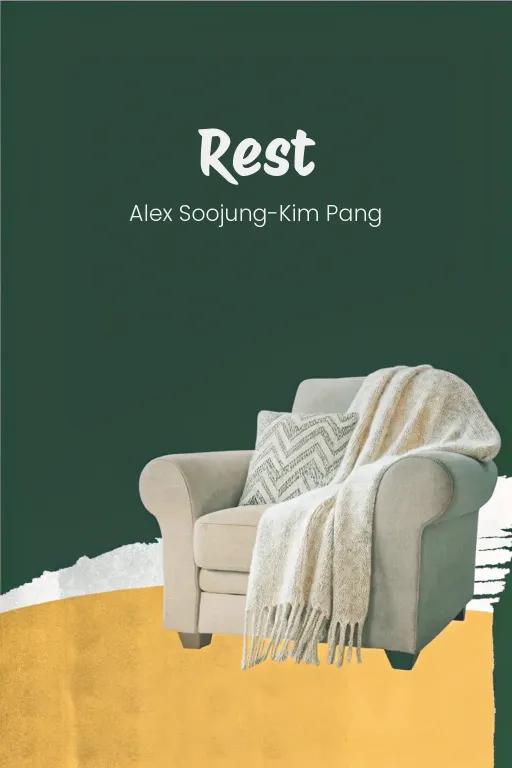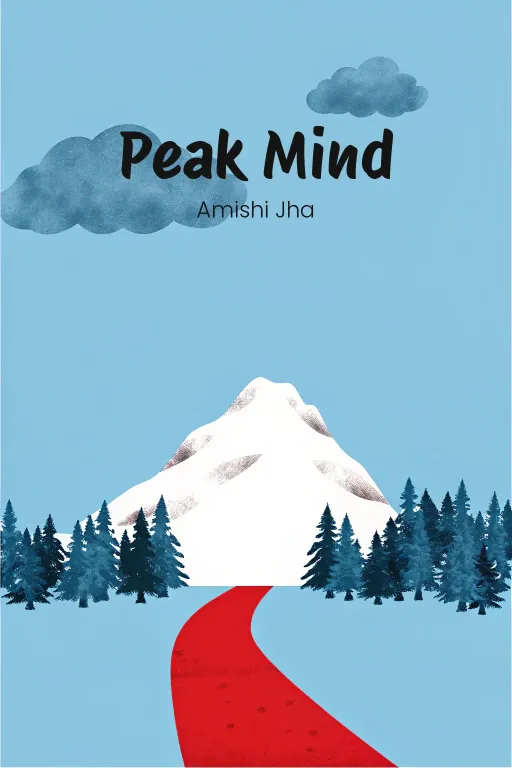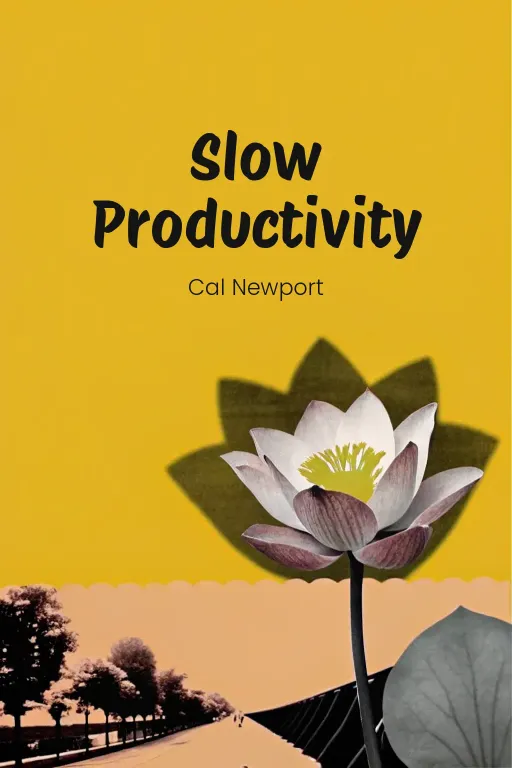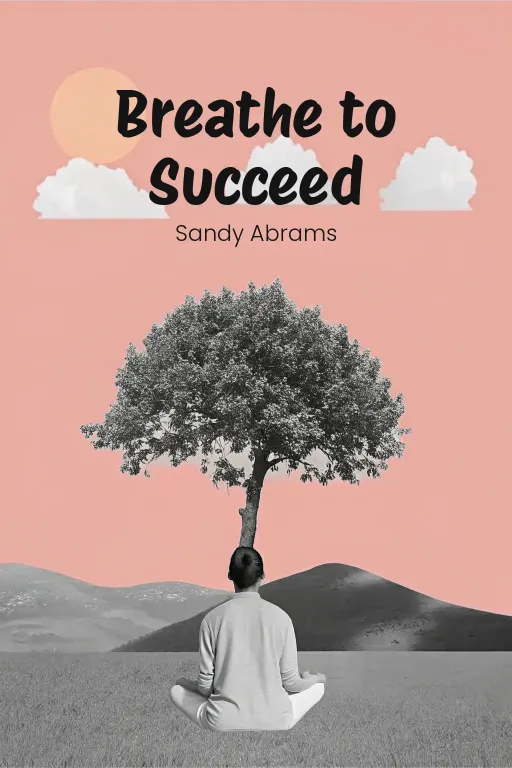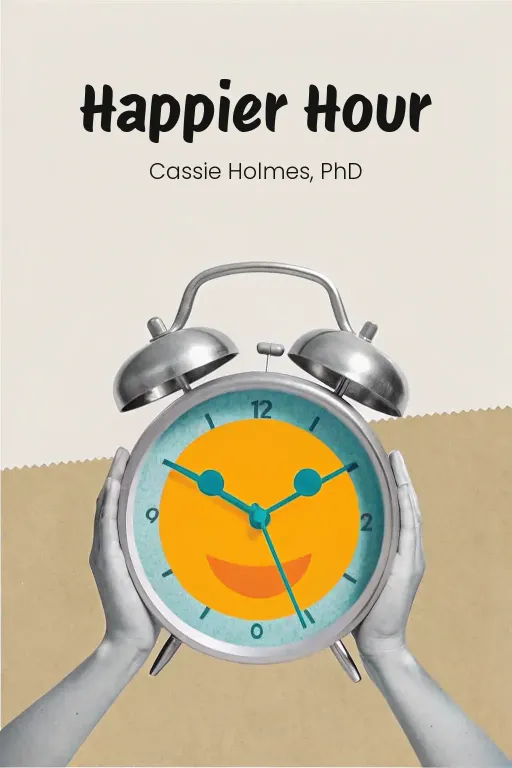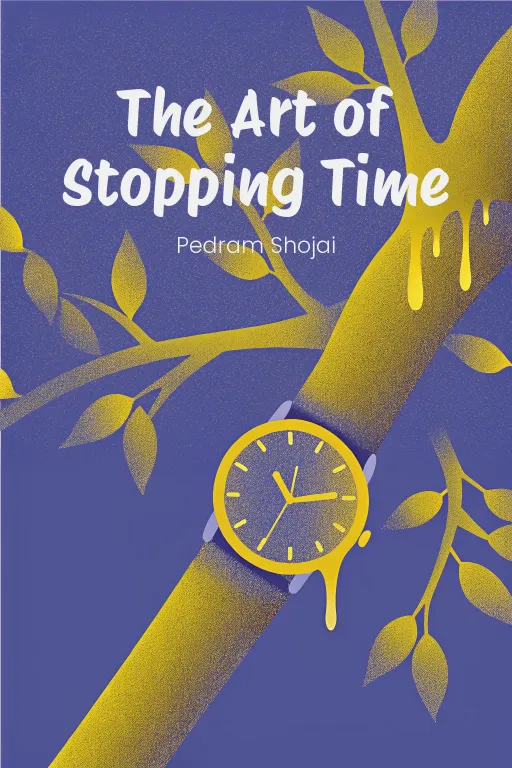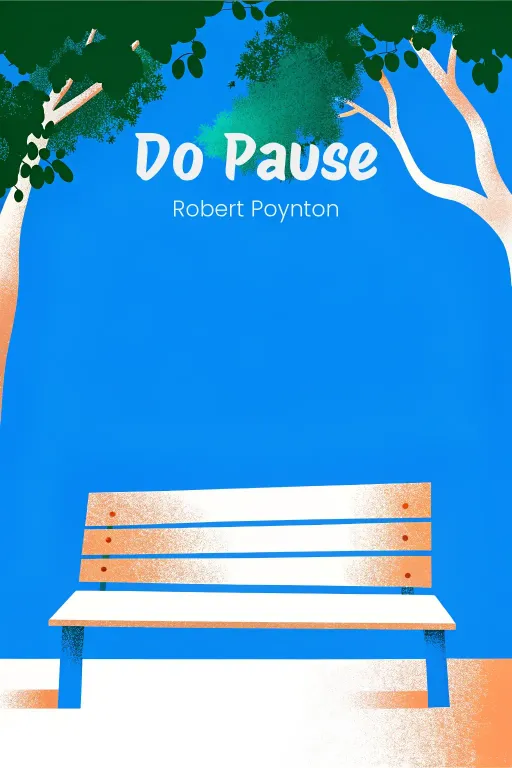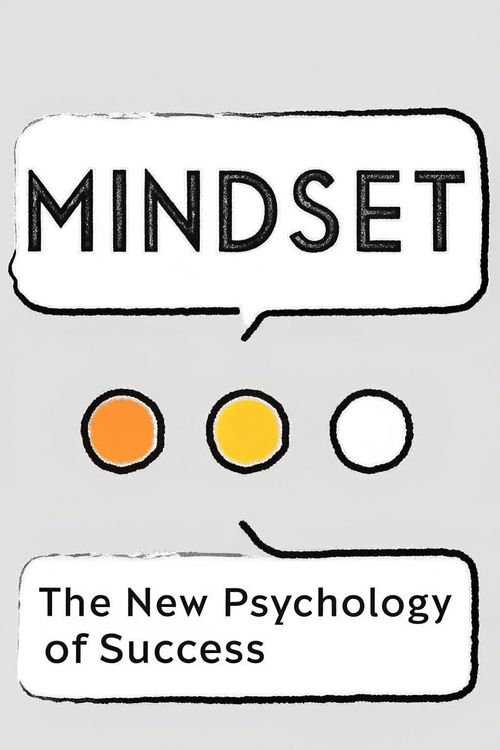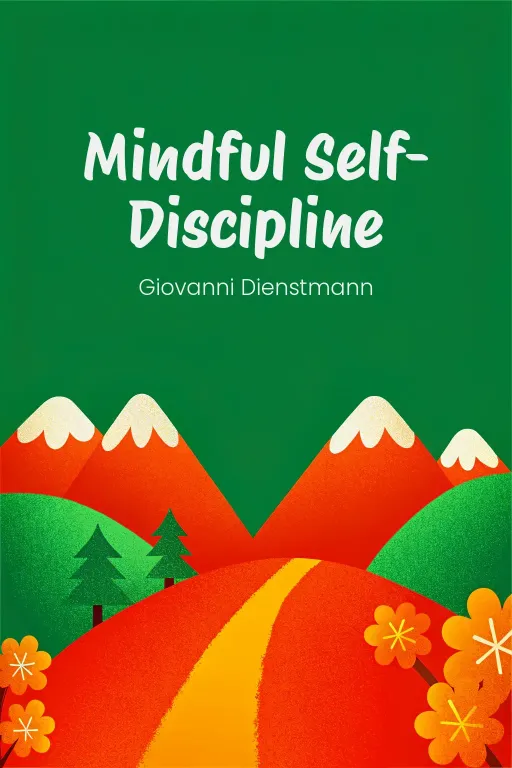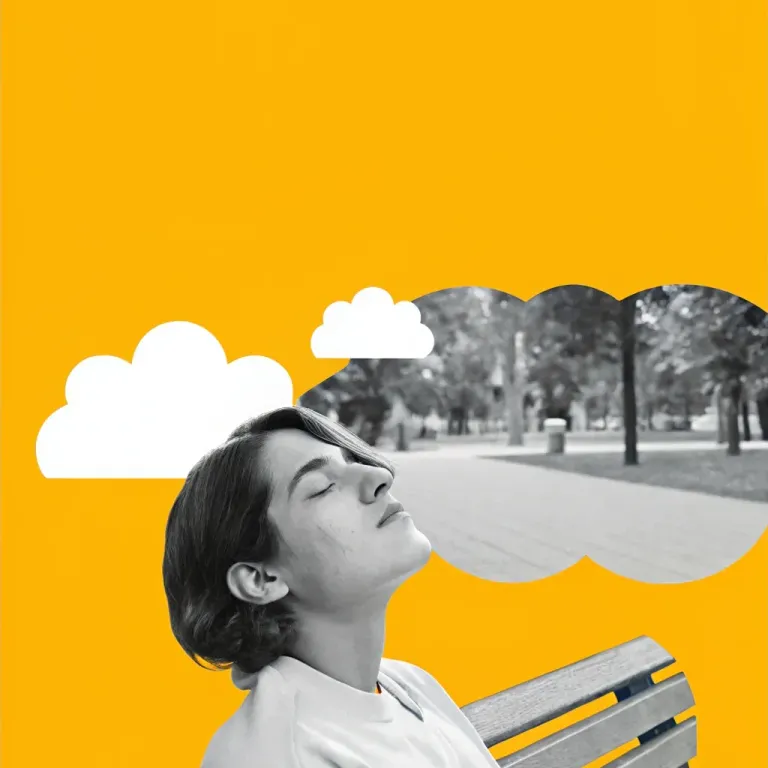
The Pause Advantage
Podcast by Beta You with Alex and Michelle
You Are Not a To Do List
The Pause Advantage
Part 1
Alex: Hey everyone, welcome back to the show! Michelle, let me throw a question your way—and to all our listeners out there: When did you last truly allow yourself to pause? And I’m not talking about a quick coffee break while glued to your phone. I mean a real pause to just breathe, reflect, or simply “be” present? Michelle: Wow, Alex, putting me on the spot right off the bat! My last real pause... uh, does mindlessly staring into the fridge count? I think most of us are just constantly rushing around. Okay, you've definitely got my attention. Why is this "pausing" thing so vital anyway? Alex: Exactly the right question, Michelle! That's what Robert Poynton delves into in his fascinating book, Do Pause. He looks at how deliberately stepping back—whether it's a brief ten-second pause or even a year-long sabbatical—can open up space for creativity, deepen our understanding of ourselves, improve how we relate to others, and actually make us better decision-makers. It's not about achieving less, you see; it’s about being more conscious and deliberate with our time. Michelle: Interesting. So this isn’t just your run-of-the-mill "take a break" pep talk. It’s more like adjusting your entire way of thinking about time? Alex: Absolutely. Poynton doesn’t just suggest pauses; he gives us real strategies and examples. He draws from cultural practices, like the Spanish tradition of "sobremesa"—you know, lingering at the table after a meal, enjoying conversation. And he also brings in historical perspectives on sabbaticals. It's about fundamentally changing how we think about time. Michelle: Alright, so what's our agenda today? Are we all going to meditate for three hours straight? Alex: Not quite, Michelle. We’ve broken down the discussion into three key areas from the book. First, we’ll dive into the tangible benefits of pausing—how it affects everything from our ability to be creative to making sound judgements. Then, we’ll investigate practical ways to weave pauses into our daily routines, even when time is tight. And finally, we’ll draw on examples from different cultures to see how they embrace stillness in their fast-paced lives. Michelle: Benefits, practical tips, and a global perspective—I like that. Sounds like we’re about to embark on a very thoughtful, pause-filled journey. Let’s dive in!
The Transformative Power of Pauses
Part 2
Alex: So, let's dive in with self-awareness. Poynton suggests that a pause often gifts us self-awareness first. You know, when we're constantly on the go, reacting, solving problems, it's so easy to lose touch with what's going on inside. This reminds me of Dan Klein's observation that 40% of business folks are told they talk too fast during presentations. It’s not just speed; it's a sign of our hurried lives. Michelle: Right, I totally get that. In a meeting, you just want to get your point across before getting cut off, right? But if we're going too fast for others—maybe even ourselves—isn't that just shooting ourselves in the foot? Alex: Exactly! Klein even suggests just breathing intentionally during conversations. It creates space, not just for the speaker to gather their thoughts, but also for the listener to actually process things. He points out something interesting: what we experience as an awkward pause might be seen by others as a moment of emphasis or clarity, believe it or not. Michelle: So, instead of blurting things out like a used-car salesman, you...pause, breathe, and suddenly everyone thinks you're a genius because they can finally keep up? Alex: Well, that's one way of putting it! I like to think of it as grounding yourself. Pausing not only makes communication clearer, but it also helps you recognize what you're feeling in the moment. That clarity can really improve your interactions and make you more aware of how others are responding too, you know? Michelle: Okay, fair enough. Step one: less verbal diarrhea, more breathing and pacing. Got it. But let's switch gears. What about creativity? Can pausing actually help when you're up against a tight deadline? Alex: Definitely! Justin Wise's work on using walking as a purposeful pause is a great example. He didn’t just tell his clients to take a stroll; he encouraged them to use walking to unlock their creativity. Of course, they were skeptical at first – who wouldn’t be, especially in a work environment where time is money? But gradually, they realized that these pauses brought clarity they didn't expect. Michelle: Walking as a creative boost... it sounds a bit backwards, though, doesn’t it? You step away from the actual task, and that's supposed to help you figure it out faster? Alex: Well, walking gets your body moving while freeing your mind to wander a bit. Frederic Gros touches upon something similar in "A Philosophy of Walking." When you move, especially at a relaxed pace, you disconnect from the immediate stress and let your subconscious connect ideas more freely. Michelle: So, what you're saying is, my next big pitch could be solved by... a detour through the park? Alex: Potentially! Even just a five-minute pause away from your desk can spark breakthroughs. There's real power in disengaging, even briefly. And these aren't just isolated cases; this approach, when consistent, helps people tackle even those really complex issues with much more creativity. Michelle: Okay, Alex, I'm starting to come around. But what about relationships? If pausing makes you more self-aware and gives you creative insights, surely that changes how we connect with others too, right? Alex: Absolutely. Poet David Whyte puts it beautifully: if your words are worth saying, they're worth giving a moment to sink in. Pauses during conversations aren’t just about clarity; they're about respect and connection. By giving people the space to truly hear you – and listening attentively in return – you create a more meaningful exchange. Michelle: That hits home, actually. Think about how many arguments or misunderstandings we could avoid if we just took a breath instead of immediately reacting. Alex: Exactly! Or if we embraced traditions like sobremesa, the Spanish custom of lingering at the table after a meal. It’s less about efficiency, more about savoring the connection. Poynton emphasizes how pauses really enrich human bonds, you know? It's a reminder that relationships thrive when there's time for thoughtful exchange instead of rushed, transactional interactions. Michelle: So, shared pauses, like sobremesa, turn everyday moments—like having dinner—into opportunities for connection? That’s a cultural hack I might actually get behind. But, not all of us have the luxury of leisurely meals every day. How can we apply this in our busier lives, especially in the workplace? Alex: That brings us to decision-making. Pauses don’t have to be long to be effective. Jon Stokes used micro-pauses to interrupt impulsive reactions. Something as simple as taking three breaths before responding in a tense conversation gives you that crucial buffer. It’s not just about cooling down; it’s about giving intention the space to guide your response. Michelle: That sounds like mindfulness 101, Alex. But can we scale this up? I'm thinking of high-pressure environments, places where there's just no time to hesitate, you know? Alex: A perfect example is the World Health Organization’s surgical safety checklist. Teams take a moment to pause before surgeries. It's not a luxury; it's a necessity. That deliberate pause has led to fewer post-surgical complications—lives saved by an intentional moment of reflection. Michelle: Wait a minute, slowing down, even in an operating room, can actually improve outcomes? That’s actually... pretty profound. Alex: It “really” is, Michelle. It shows that pauses aren’t about avoiding action; they’re about ensuring the right action is taken. Whether it's medical decisions, business strategies, or personal responses, that reflective space can change things profoundly.
Practical Strategies for Incorporating Pauses
Part 3
Alex: So, let's talk about how we can build these pauses into our everyday lives. I think we can look at it on three levels: what we do as individuals, how our environment affects us, and, you know, our cultural norms. Let’s start with what we can do personally, like mindfulness and just… breathing. Michelle: Right, the classic advice: "Just breathe." Sounds easy enough, doesn't it? But seriously, it's sometimes the hardest thing to remember when things get crazy. Alex: Exactly! It's simple, but if you do it deliberately, it's incredibly powerful. Robert Poynton actually talks about this, referencing Dan Klein's work at Stanford. Klein points out that rushing – whether it’s talking too fast or just doing everything at top speed – reflects the overall pace of our lives. So, when we intentionally pause, especially when we're communicating, we're not only calming ourselves, but we're also giving the other person a chance to really hear and process what we're saying. Michelle: Okay, picture this: a boardroom meeting, someone in a power suit decides to, like, “dramatically” pause. Wouldn’t that come off as, shall we say, a bit strange? Alex: Not if it's done authentically. Klein emphasizes that what feels like an “eternity” to the person speaking – a pause to gather your thoughts, a moment of silence – often feels like thoughtful emphasis to the listener. It's about reframing your own discomfort as a chance to connect more deeply. Michelle: So, breathe, slow down, and embrace the silence. Got it. But let's be real, not everyone finds peace in silence. What if you need to move around a bit? What else can we do? Alex: Good point! That’s where walking comes in – not just as exercise, but as a way to, you know, mentally reset. Justin Wise, for example, often suggests that his clients take short walks during the day, especially when they're feeling stuck on a problem or just overwhelmed. Michelle: Seriously? If you're trying to meet a deadline, isn't the last thing you want to do is leave your desk? Alex: That’s the trap – thinking that more hours automatically lead to better work. Wise found that once his clients got past that initial resistance, those walks not only lowered their stress but often sparked unexpected ideas. It's like their brains finally had a chance to sort things out once they stepped away. Michelle: So, a quick stroll might actually make you solve problems “faster”? Interesting. And that connects to what Frederic Gros says about walking setting your mind free. That whole "flow state" thing – it reminds me of Angela McLean, the professor who does walking meetings with her colleagues. Genius, right? Changing the environment creates a different kind of energy and perspective. Alex: Absolutely! Walking breaks down that formality of sitting around a table. The discussions become more fluid and explorative. It just proves that sometimes, progress doesn’t come from pushing harder, but from actually stepping away. Michelle: Alright, so we’ve got breathing and walking – pretty straightforward. But what if these reflective pauses kind of need more structure? Alex: That’s where journaling can be helpful. Julia Cameron’s "Morning Pages" are a perfect example. It’s a super simple exercise: first thing in the morning, you just write three pages, whatever comes to mind, no editing. The idea is to get past all the conscious clutter and tap into a deeper level of clarity. Michelle: So, like a brain dump on paper? I can see how that might free up some mental space, but isn't that just one more thing to add to an already crazy day? Alex: It's not about writing perfectly or even making total sense. Take Lynda Johnson’s example. She journals in the evening and uses it to reflect on the day – patterns she noticed, problems she couldn’t quite solve, even just random thoughts. Over time, that reflective space has helped her see challenges more clearly and come up with really thoughtful solutions. Michelle: Okay, I see. So journaling isn't about writing the next great novel, but more about holding up a mirror to your own mind. Got it. But Alex, you know me; I love a good mental pause, but I also like to get away from it all. What about something bigger? Alex: That takes us into the realm of retreats. Chris Riley's annual "Reading Weekend" is a great example of this. Just imagine him retreating to this peaceful, stone-walled house in Avila. All he does is read, reflect, and have deep conversations. It's not just a weekend off; it's a conscious chance to reset and just, you know, recalibrate. Michelle: Retreats sound amazing, but realistically? I mean, most of us don't have a stone house at our disposal, or the ability to just completely disconnect from our responsibilities. Alex: True, but even smaller pauses can give you similar benefits. Structured retreats aren’t “just” about the location; they're about creating deliberate space to focus inward, away from the noise of everyday life. Poynton argues that, whether it’s a weekend away or just dedicating an hour at home to reflect without interruption, what matters is intentionally carving out that pause. Michelle: Speaking of noise, let's talk about something we all deal with – micro-pauses. Can we find a way to turn the mundane – like traffic jams or waiting in long lines – into something like intentional pauses? Alex: Absolutely! These little moments might seem insignificant, but they're actually golden opportunities. Someone, for instance, used his daily commute as bonding time with his son – talking together in the car instead of getting stressed about the traffic. Or Tom Hockaday's "Take Five" practice – spending five quiet minutes at the end of his workday to mentally transition from work to home. Michelle: I like that – finding reflection in situations most of us dismiss as time wasted. It's a mindset shift, right? Where we see inconvenience, there's potentially clarity and connection. Alex: Exactly. And whether it’s mindful breathing, walking, journaling, structured retreats, or everyday micro-pauses, all these strategies ultimately remind us: pausing isn’t about stepping “away” from life – it’s stepping “into” it with more depth, more creativity, and more presence. Michelle: Well, Alex, that’s a pause worth considering. Let's keep exploring these ideas, because ultimately, they're not just techniques – they're invitations to live a fuller life.
The Cultural and Societal Context of Pause
Part 4
Alex: So, naturally, understanding all these strategies leads us to the societal and cultural context of pausing. How different cultures approach pauses is a rich backdrop for understanding its transformative power. Today, let’s explore this in three layers: cultural perceptions of pausing, societal impacts of fast versus slower lifestyles, and the global relevance of integrating pauses. Let’s start with where pausing feels most integrated—culture. Michelle, have you ever heard of the Spanish tradition of sobremesa? Michelle: Sobremesa! Yeah, I've heard the term. But refresh my memory—that's the after-meal lingering, right? Just chatting, coffee, maybe a little wine? Alex: Exactly! It's not just idly chatting; it's a cultural ritual where the meal doesn't end with eating. The table becomes a stage for connection—stories, laughter, discussions. It's about savoring the moment after eating. What's striking is how deeply it's woven into daily life in Spain. Restaurants close during certain hours to allow for that rhythm — can you imagine? Michelle: Honestly? As a frequent victim of the lunch-at-my-desk culture, it sounds revolutionary. But it also highlights a clear contrast between cultures that value connection versus those that prioritize efficiency, doesn’t it? Alex: Absolutely. In cultures where meals are transactional, just fuel to keep working, those deeper human connections often get sidelined. Sobremesa shows how pausing isn’t a luxury but a necessity for emotional and social nourishment. It's a different rhythm of life — one that values depth over speed. And that rhythm ripples through society, shaping how people relate to time and each other. Michelle: I get it. So the societal “pace”—fast or slow—affects more than just our calendars. It impacts our connections, and even our mental health. But let's face it, Alex, not every culture has room for that kind of leisurely connection. What about places where the pace is relentless? What does a fast-paced society lose when it skips the pauses? Alex: That brings us to the societal impacts of speed versus slowness. In hyper-productive societies, we see what's called “continuous partial attention.” It’s being physically present but mentally fragmented — always multitasking, always reacting. Without pauses, people become disengaged, both from themselves and from others. Ellen Langer’s research on mindfulness speaks to this. She argues that when we react without reflection, we lose the ability to deeply engage. Michelle: Interesting. So we’re constantly doing—but that perpetual motion leads to a kind of mental shallowness? It's like trying to swim across the ocean without ever even taking a break to look at the stars or check a compass, ah? Alex: Exactly. On the flip side, slower-paced societies often build pauses into their collective rhythms. Take the olive harvest in Spain, for example. Villagers gather to harvest, but what could be task-focused becomes a community-building experience. They embrace the waiting moments—like time spent at the oil press—to share stories, bond, and strengthen ties. Michelle: So, instead of begrudging the wait as wasted time, they lean into it as valuable social currency. That’s a pretty stark contrast to the “every second counts” approach many of us are used to. But here's the kicker - doesn't slower living mean less gets done? Alex: That's the common misconception. Actually, it's the opposite. Slower rhythms often foster deeper productivity and well-being. People are more connected, more creative, and generally healthier. And there's a lesson here for even the busiest societies: intentional slowness doesn't hinder — it enhances. Michelle: Okay, you’ve sold me on slowing down—at least to some degree. But what about the global relevance? Do these cultural and societal lessons translate beyond places like Spain? Alex: Yes, they do. Consider the juxtaposition Pico Iyer makes between Silicon Valley and Arenas de San Pedro, a quiet village in Spain. Silicon Valley thrives on relentless innovation, but often at the cost of anxiety and burnout. Arenas, by contrast, thrives in its unhurried simplicity. It's a place where pauses—be they walks or moments of stillness—are woven into the fabric of life. Michelle: I see where you’re going with this. One offers constant progress but at a mental toll; the other offers restoration. So, how do we bring a bit of Arenas into the Silicon Valleys of the world? Alex: The key lies in adapting practices like pausing and deliberate stillness into contexts where speed dominates. Even high-achieving environments like Silicon Valley are beginning to recognize this, incorporating retreats, mindfulness training, and sabbaticals as tools for sustained innovation and well-being. It's not an either-or—it's about finding balance. Michelle: Balance, huh? Like the cultural equivalent of sobremesa for our increasingly digital age. It’s fascinating—and a little sobering—to think about what we might regain if we embraced these pauses. Alright, Alex, I’m officially pausing to reflect on all this. Where do we go next in today’s conversation?
Conclusion
Part 5
Alex: So, Michelle, today we “really” dug into how powerful pauses can be. I mean, they can actually change how we see ourselves, boost our creativity, deepen our relationships, and even help us make better decisions. We talked about everything from simple breathing exercises to walking, journaling, and even traditions like sobremesa. We “really” looked at some practical ways to build these pauses into our everyday lives. And, you know, how the overall pace of society impacts not just our productivity, but also how we feel as a whole. Michelle: Yeah, what “really” struck me is that pausing isn't about escaping life, it’s about diving into it more consciously. Whether it’s just a few deep breaths or something bigger, like an olive harvest that's also a community event, these moments aren't just time-outs. They're chances to “really” connect and get clear on things. Alex: Exactly! And here's what I want our listeners to think about: Where in your day could you squeeze in even a tiny pause? Maybe it’s when you’re facing a crazy deadline at work, or during a tough conversation, or even just waiting in line. How could you use that moment to just breathe, reflect, or be more present? Michelle: Okay, so here’s the challenge, folks. This week, try out at least one of these things we talked about. See if taking five minutes to breathe or just going for a quick walk can change how you show up, both for yourself and for the people around you. Who knows? You might just discover something new about yourself or make a connection you never expected. Alex: Beautifully put, Michelle. After all, like Robert Poynton says, pauses aren't just breaks, they're bridges to a richer, more intentional life. So take that moment, wherever you are, and let the power of the pause just... surprise you. Michelle: Alright, Alex, I guess that's my cue... to pause and say goodbye. See you all next time!
